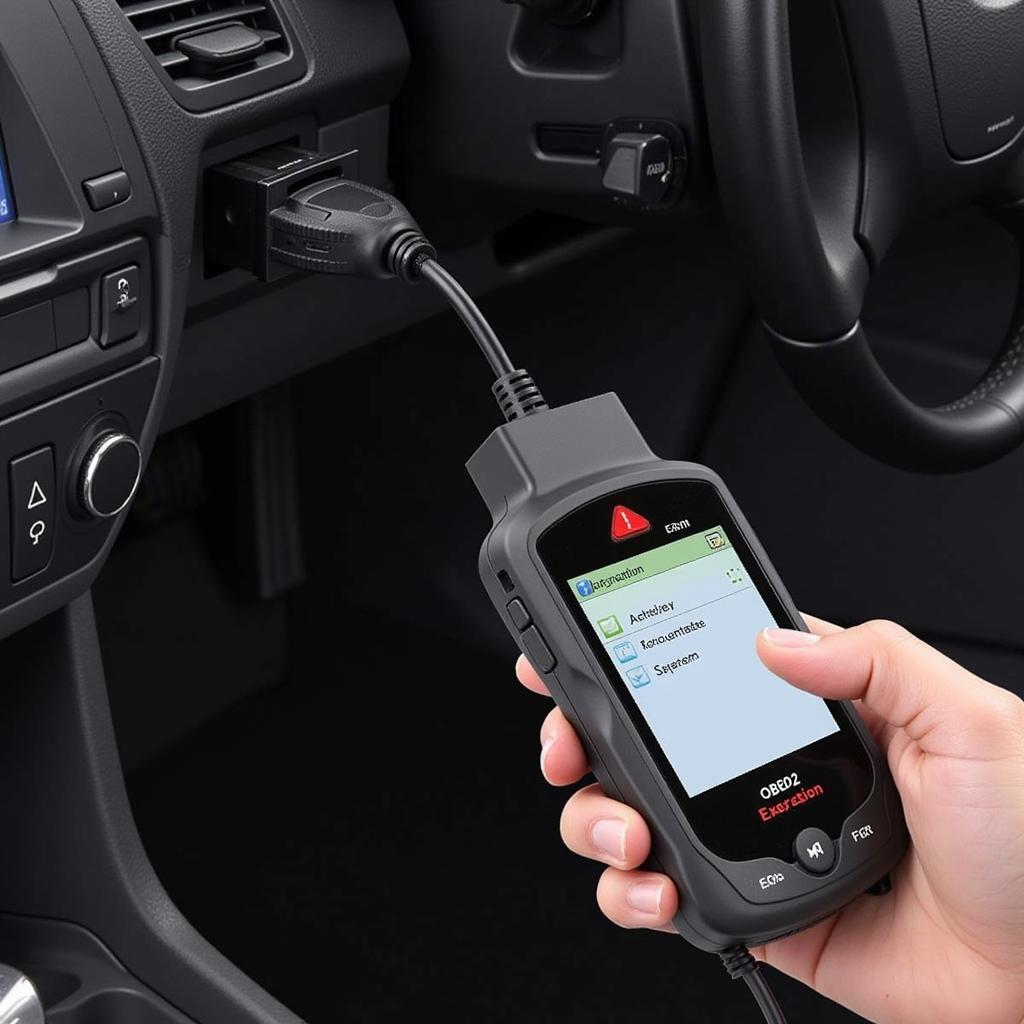If your Car Has Problem Starting After Sitting Overnight, you’re not alone. This frustrating issue can stem from various culprits, from a weak battery to a failing fuel pump. This guide will help you diagnose and troubleshoot the problem, whether you’re a seasoned mechanic or a car owner looking for DIY solutions.
Why Won’t My Car Start After Sitting Overnight?
A car that starts fine after a short drive, but struggles after sitting overnight, often points to a problem that worsens with time or temperature drops. This can be due to several factors, each requiring a different approach to fix. Let’s explore some of the most common reasons:
- Battery Issues: A weak or dying battery is a prime suspect. Cold temperatures can exacerbate existing battery problems, making it difficult to crank the engine in the morning.
- Fuel System Problems: Fuel leaks, a malfunctioning fuel pump, or clogged fuel injectors can prevent fuel from reaching the engine, especially after the fuel pressure has dissipated overnight.
- Electrical Problems: Faulty wiring, corroded connections, or a failing starter can disrupt the electrical flow needed to start the car.
- Sensor Malfunctions: A faulty crankshaft position sensor or coolant temperature sensor can send incorrect information to the engine control unit (ECU), leading to starting problems.
- Security System Issues: In some cases, a malfunctioning immobilizer system can prevent the car from starting.
Similar to a car warm start problem, the temperature can play a significant role in these starting issues.
Diagnosing the Problem: A Step-by-Step Guide
- Check the Battery: Begin by testing the battery voltage. A reading below 12.4 volts indicates a weak battery. Try jump-starting the car. If it starts, the battery is likely the culprit.
- Inspect the Fuel System: Listen for the fuel pump priming when you turn the key to the “on” position. If you don’t hear it, the fuel pump could be faulty. Also, check for fuel leaks and clogged fuel filters.
- Examine Electrical Connections: Inspect the wiring and connections to the starter, battery, and other essential components for corrosion or damage.
- Test the Starter: If the battery is good, but the engine doesn’t crank, the starter could be the problem. You can test it using a multimeter or by tapping it gently with a hammer while someone tries to start the car.
- Check for Diagnostic Trouble Codes (DTCs): Use an OBD-II scanner to check for any stored trouble codes. These codes can pinpoint the source of the problem, particularly if it’s related to sensors or the ECU.
Common Mistakes to Avoid
- Ignoring Warning Signs: Don’t dismiss intermittent starting problems. Addressing the issue early can prevent more significant and costly repairs later.
- Replacing Parts without Proper Diagnosis: Throwing parts at the problem without a proper diagnosis can be expensive and ineffective.
- Neglecting Routine Maintenance: Regular battery checks, fuel system cleaning, and electrical inspections can prevent many starting problems.
Expert Insights
“A simple battery test can often save you time and money. It’s the first thing I check when a car has starting issues,” says John Miller, a certified automotive technician with over 20 years of experience.
This aligns with common issues experienced with cars that car has problem first start up then its fine. Understanding the similarities can aid in diagnosis.
Preventing Future Starting Problems
- Regularly test your battery and replace it when necessary.
- Keep your fuel system clean by using quality fuel and fuel system cleaners.
- Inspect and clean electrical connections periodically.
- Address any starting problems promptly to prevent them from worsening.
Conclusion
A car that has problem starting after sitting overnight can be a real headache. However, by systematically diagnosing the problem and taking the necessary steps, you can get your car back on the road quickly. Don’t hesitate to contact AutoTipPro at +1 (641) 206-8880 or visit our office at 500 N St Mary’s St, San Antonio, TX 78205, United States, for expert assistance.
 OBD2 Scanner Diagnosing Car Problems
OBD2 Scanner Diagnosing Car Problems
“Preventative maintenance is key. Regular checks can identify potential issues before they leave you stranded,” adds Sarah Johnson, a senior automotive engineer.




Leave a Reply